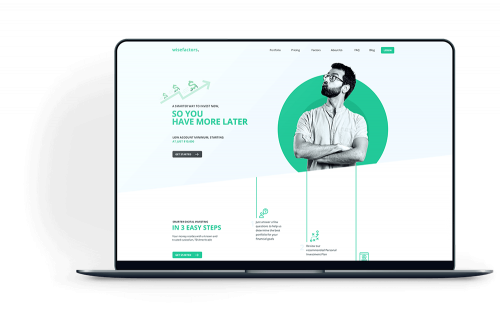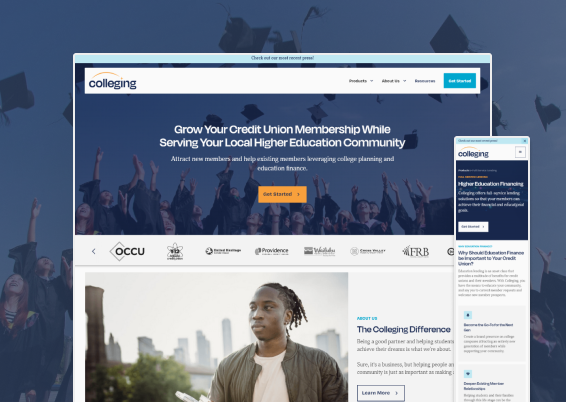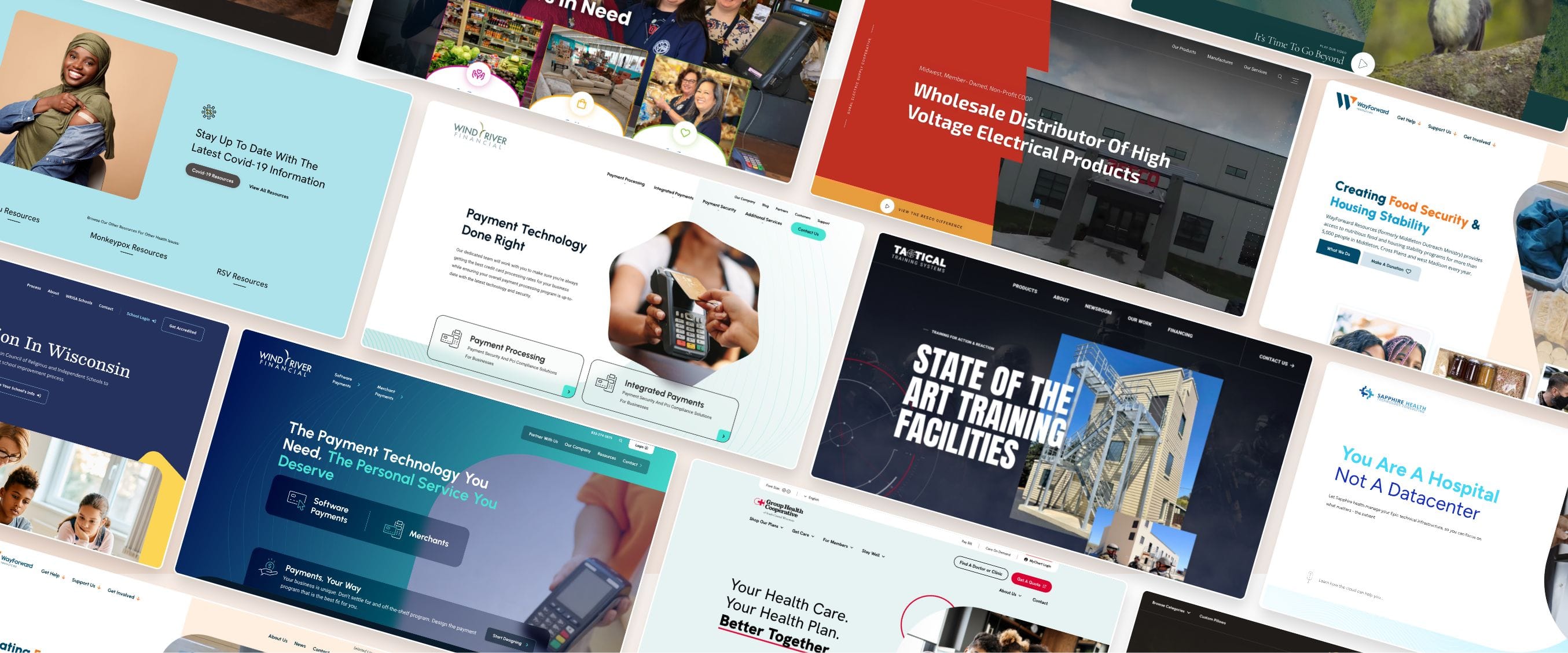The Importance of Availability in Modern Website Design
The Importance of Availability in Modern Website Design
Blog Article
The Power of User-Centered Web Site Design in Growing Your Online Audience
Efficient design concepts-- such as user-friendly navigation and availability-- are important in fostering individual satisfaction and commitment. What methods can organizations embrace to guarantee their styles resonate with users and eventually drive growth?

Comprehending User-Centered Layout
User-Centered Style (UCD) is an essential technique to site advancement that prioritizes the needs, choices, and actions of end users throughout the design process. This methodology stresses comprehending users deeply-- through study approaches such as interviews, surveys, and use screening-- to create a web site that reverberates with them. By including individual feedback at every stage, designers can ensure that the final item aligns closely with user expectations.
UCD promotes iterative design, where prototypes are evaluated and refined based upon customer communications and experiences. This cycle not only improves usability yet likewise fosters a feeling of possession amongst individuals, as they feel their input is valued and impactful. In addition, UCD assists identify possible obstacles and pain factors in the user journey, enabling developers to resolve these obstacles proactively.
Inevitably, embracing UCD leads to internet sites that are more instinctive, interesting, and efficient. By putting individuals at the center of the design procedure, companies can create digital experiences that not only attract however likewise retain their target audience, driving better fulfillment and loyalty. In a competitive online landscape, this approach is necessary for attaining sustained success.
Key Concepts of Individual Experience
An effective individual experience (UX) rests on several key principles that guide the style procedure and enhance communication between users and the internet site. Firstly, use is critical; the internet site needs to be user-friendly, allowing individuals to navigate easily and discover details rapidly. This consists of clear labeling and a rational structure that decreases cognitive lots.
Second of all, accessibility plays a vital function in making certain that all individuals, regardless of their handicaps or capabilities, can successfully engage with the website. Including alt message for photos, keyboard navigation, and display visitor compatibility cultivates inclusivity.
Uniformity is another crucial concept. A cohesive design language, from shade schemes to typography, helps users construct familiarity and trust fund with the web site (Website Design). It likewise strengthens brand name identity
In addition, responses devices are essential. Customers need to obtain immediate and clear actions to their actions, whether with visual signs or verification messages, which enhances their confidence in browsing the website.
Last but not least, mobile responsiveness can not be forgotten. With a boosting variety of individuals accessing web sites by means of mobile phones, a style that adjusts effortlessly to different display sizes is important for keeping a favorable user experience.

Advantages for Online Engagement
Effective online engagement provides numerous benefits that can substantially improve a site's general performance - Website Design. By cultivating significant communications between customers and the site, companies can cultivate a faithful target market that returns with uniformity. Engaged users are most likely to share material, therefore raising natural reach and drawing in brand-new site visitors with word-of-mouth promotion
Improved online interaction likewise brings about enhanced individual contentment. When users find a site that reverberates with their requirements, they are much more inclined to discover its offerings thoroughly, which can result in higher conversion prices. In addition, interesting web content motivates customers to invest more time on the website, lowering bounce rates and positively affecting online search engine ranking algorithms.
Furthermore, efficient interaction provides vital insights right into customer preferences and behaviors (Website Design). By analyzing customer communications, organizations can customize their content and style strategies to fulfill the progressing assumptions of their audience. This flexible approach not just boosts interaction however likewise strengthens the brand name's reputation as receptive and user-centric
Inevitably, prioritizing on-line involvement through user-centered layout develops a flourishing environment where both the company and the target market benefit, resulting in sustained growth and success in the electronic landscape.

Techniques for Effective Style
To make the most of the benefits of online interaction, utilizing details techniques in site layout is vital. First, user-friendly navigating is necessary; users ought to quickly locate details without confusion. A well-structured menu, clear labels, find out here and a rational hierarchy improve the user experience and minimize bounce prices.
Second, receptive layout is important in today's multi-device atmosphere. Guaranteeing that a site adjusts perfectly to various display sizes fosters access, therefore accommodating a more comprehensive target market. This flexibility not only boosts user satisfaction yet also favorably influences search engine rankings.
Third, using visual pecking order guides users' view publisher site attention to vital elements, such as contact us to action (CTAs) Using contrasting colors, varying font sizes, and tactical spacing can successfully route individuals toward desired activities, facilitating greater interaction.
Furthermore, executing regular branding throughout all pages builds depend on and acknowledgment. A natural color typography, imagery, and scheme strengthen brand name identification and create a specialist appearance.
Last but not least, enhancing loading rates is crucial. Customers are much less most likely to engage with a slow-loading website, making performance optimization a critical aspect of reliable design. By including these methods, site developers can boost individual experience and eventually grow their on the internet target market.
Real-World Success Stories
Success stories in user-centered internet site layout illustrate the substantial benefits of prioritizing user experience. As a result, they experienced a 250% rise in online donations, demonstrating exactly how an instinctive layout can drive customer interaction and assistance.
One more engaging instance is that of Airbnb, which utilized user-centered design principles to improve their reservation procedure. By simplifying the individual journey and incorporating customized recommendations, they considerably decreased website abandonment prices. This emphasis on individual experience added to a profits development of over 70% in a single year, emphasizing the correlation between properly designed interfaces and financial success.
In addition, the shopping titan, ASOS, applied customer testing to refine their mobile application. By resolving individual pain points, they attained an exceptional 30% boost in mobile sales. These instances highlight that purchasing user-centered layout not only boosts customer fulfillment yet likewise drives tangible service outcomes, reinforcing the vital role of user experience in achieving on-line development.
Verdict
In verdict, user-centered site layout functions as an important method for improving on-line target market interaction. By prioritizing user requirements and choices, organizations can create available and intuitive digital experiences visit this site right here that foster commitment and drive conversions. The assimilation of user comments throughout the style procedure not only reduces bounce rates yet also urges exploration. Ultimately, taking on effective user-centered style principles can considerably add to a company's success in a competitive electronic landscape.
User-Centered Design (UCD) is a fundamental approach to site development that prioritizes the requirements, preferences, and behaviors of end individuals throughout the layout procedure. By integrating user comments at every stage, developers can ensure that the final item straightens closely with individual assumptions.
A successful customer experience (UX) pivots on numerous vital principles that lead the layout process and improve communication in between individuals and the site.Success stories in user-centered web site layout illustrate the tangible benefits of focusing on customer experience. These examples highlight that investing in user-centered layout not just boosts individual complete satisfaction however likewise drives concrete business outcomes, strengthening the critical function of customer experience in achieving on the internet development.
Report this page